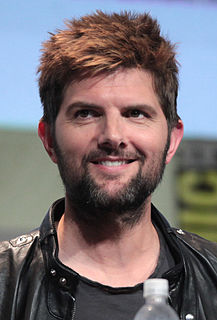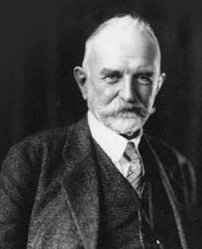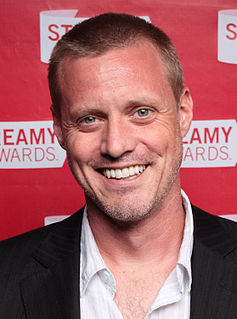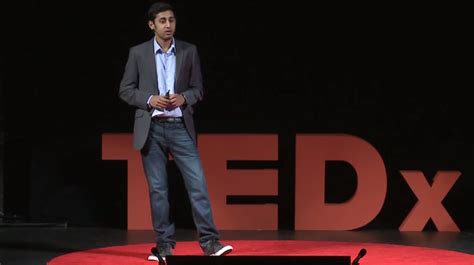A Quote by Adam Scott
I mean, the acting school I went to, we did have a social experience, but you know, when it's a bunch of actors, it's everyone self-consciously having a social experience rather than just having a social experience.
Related Quotes
The idea of the gay experience, it feels like a relic. I felt like in the '90s when we were watching the gay characters on 'The Real World,' there was definitely a gay experience that was distinct from a straight experience. If you talk to high schoolers in 2017, I don't know that is as much a part of how they experience a social dynamic.
I was convinced that worship at its best is a social experience with people of all levels of life coming together to realize their oneness and unity under God. Whenever the church, consciously or unconsciously, caters to one class it loses the spiritual force of the "whosoever will, let him come, doctrine and is in danger of becoming a little more than a social club with a thin veneer of religiosity."
To say that you can 'have experience,' means, for one thing, that your past plays into and affects your present, and that it defines your capacity for future experience. As a social scientist, you have to control this rather elaborate interplay, to capture what you experience and sort it out; only in this way can you hope to use it to guide and test your reflection, and in the process shape yourself as an intellectual craftsman
It's the same thing in a way with privacy. You can say "I'm not doing anything wrong, therefore this doesn't concern me," but what does it mean about our society if we're all being watched and recorded? The personal experience - negotiating this as individuals - doesn't describe the social reality and the broader social costs.
Video has become much more social, and as a result, there are many opportunities to use video as a way to connect people, to give them opportunities to play and participate, to make things together and have a shared social experience. I think we are just at the beginning of really exploring what social video is and what we can make of it.
So the experience of death is turned into that of the exchange of functionaries, and anything in the natural relationship to death that is not wholly absorbed into the social one is turned over to hygiene. In being seen as no more than the exit of a living creature from the social combine, death has been domesticated: dying merely confirms the absolute irrelevance of the natural organism in face of the social absolute.
It's hard for writers to get on with their work if they are convinced that they owe a concrete debt to experience and cannot allow themselves the privilege of ranging freely through social classes and professional specialties. A certain pride in their own experience, perhaps a sense of the property rights of others in their experience, holds them back.



































